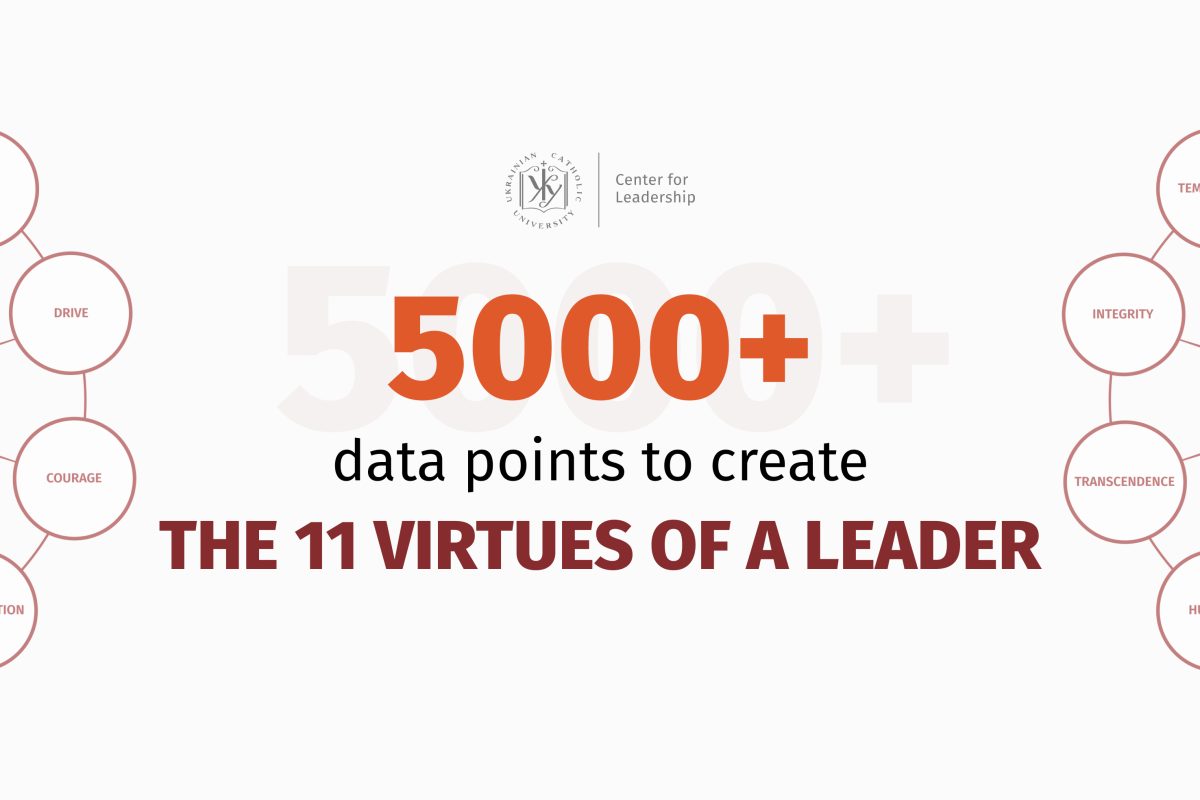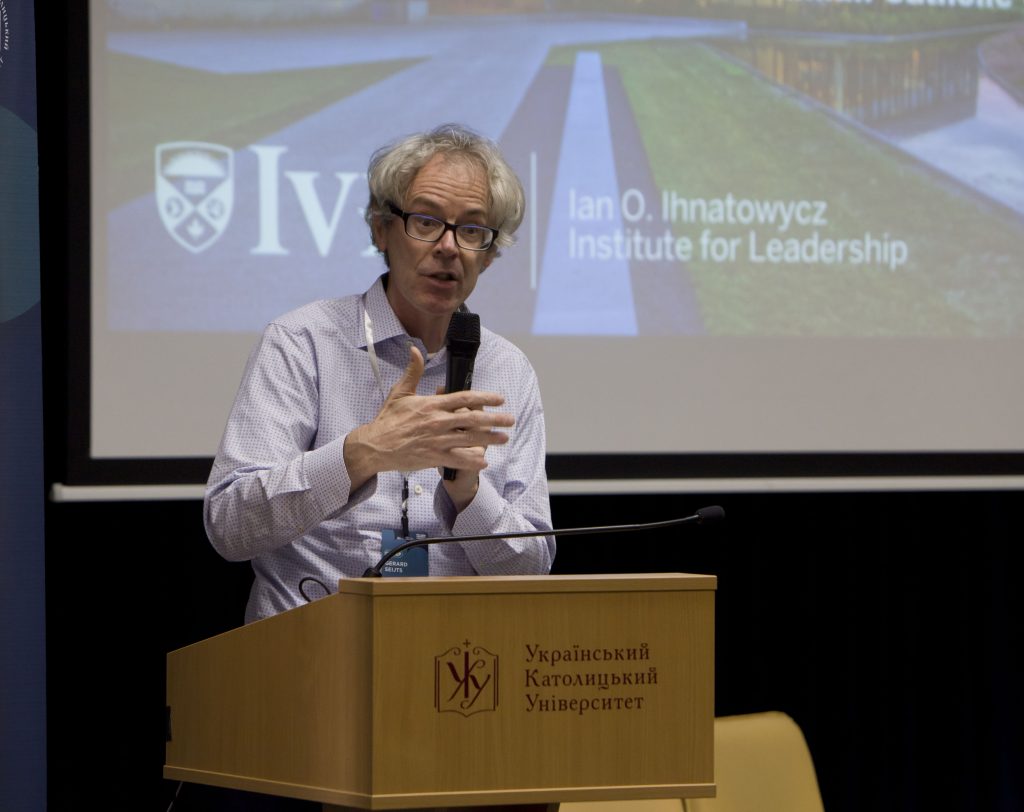
Gerard Seijts on the creation of the Concept “Leadership Based On Character”
“Leadership Based on Character” – we often refer to this concept because it forms the educational component of our Center. However, where did this theory come from, why is the Model of the 11 Virtues of Leadership Character structured this way, and how did researchers from the Ivey Business School arrive at such conclusions regarding Leadership?
In 2008, the world was hit by a financial crisis. At that time, Ivey Business School was already a leading educational institution in Canada, so their work was heavily focused on developing future leaders in the public, government, and private sectors.
Researchers understood the significant role of Leadership in such a complex situation. They sought to understand what managers thought what challenges they faced during this crisis, and what decisions they made. They conducted a series of panel discussions with leaders across Canada and in the USA, UK, and Asia. During these meetings, executives shared their observations, which became the basis for the book “Leadership on Trial” (authors: Mary Crossan, Gerard Seijts, Jeffrey Gandz, and Carol Stephenson).
It was after working on this research that Gerard Seijts fully focused on studying features of the Leadership Character:
“When it comes to effective Leadership, Competencies matter, Character matters, and Commitment matters.
Competencies are simply what we as leaders must be able to do.
Commitment is understanding not only the benefits but also the challenges of Leadership. I have been in Ukraine for a week now and cannot think of a better example than the Ukrainians in the Armed Forces. It’s a great responsibility. Despite the fact that, as I hope, Leadership brings us satisfaction, it is also loneliness, self-sacrifice, and deep constant involvement.
Character is the behavior that builds sustainable excellence in the organization”.
While teachers at Ivey Business School were conducting this research, the institution began a fundraising campaign for a new building. This is the kind of fundraising campaign that usually takes years and years. However, during this campaign, one of the graduates, proud Ukrainian Ian O. Ihnatowycz, decided that this research and the team’s work on it were so fundamental that he effectively founded the Ian O. Ihnatowycz Institute for Leadership.
The concept of “Leadership Based on Character” is built on 5000+ elements of data from interviews, surveys, and focus groups of leaders. As Gerard Seijts asserts, the most challenging part in structuring the results was selecting clear titles for each category and, although at first glance the term “Virtues” may not seem like typical business jargon, when talking about Character, it is the most fitting description.
To discuss and analyze Character, a common coordinate system was formed – a set of behavioral indicators that simply illustrate this specific dimension – the 11 Virtues.
“‘11 Virtues – that’s madness! I can’t remember all that!’ – you might say.
– ‘Excuse me, but they are all unique. They are all different, yet all interconnected’”, – Gerard Seijts.
You might agree: “Okay, I get it. They’re still too many, so here’s what I’m going to do. I’ll work on my strengths, okay? I mean, I know I’m good at Driving, I know I’m good at Courage and Responsibility. That’s who I am”.
Gerard Seijts responds: “Be very careful in your desires, because do you remember what happened during the global financial crisis? Incredibly purposeful people, exceptionally smart people with high Drive, significant Courage, and great Responsibility for what happens in the organization, were working on their challenges. But due to lack of moderation, restraint, balance, and patience, this led to a lot of reckless behavior and reckless decisions”.
All these Virtues work together, they are interrelated, to make reasoned judgments that contribute to making the right decisions. You are not born with Leadership, but you can develop it through all kinds of experience.
Gerard Seijts

Material from Gerard Seijts’s presentation at the Well-Being Leadership Conference 2024.